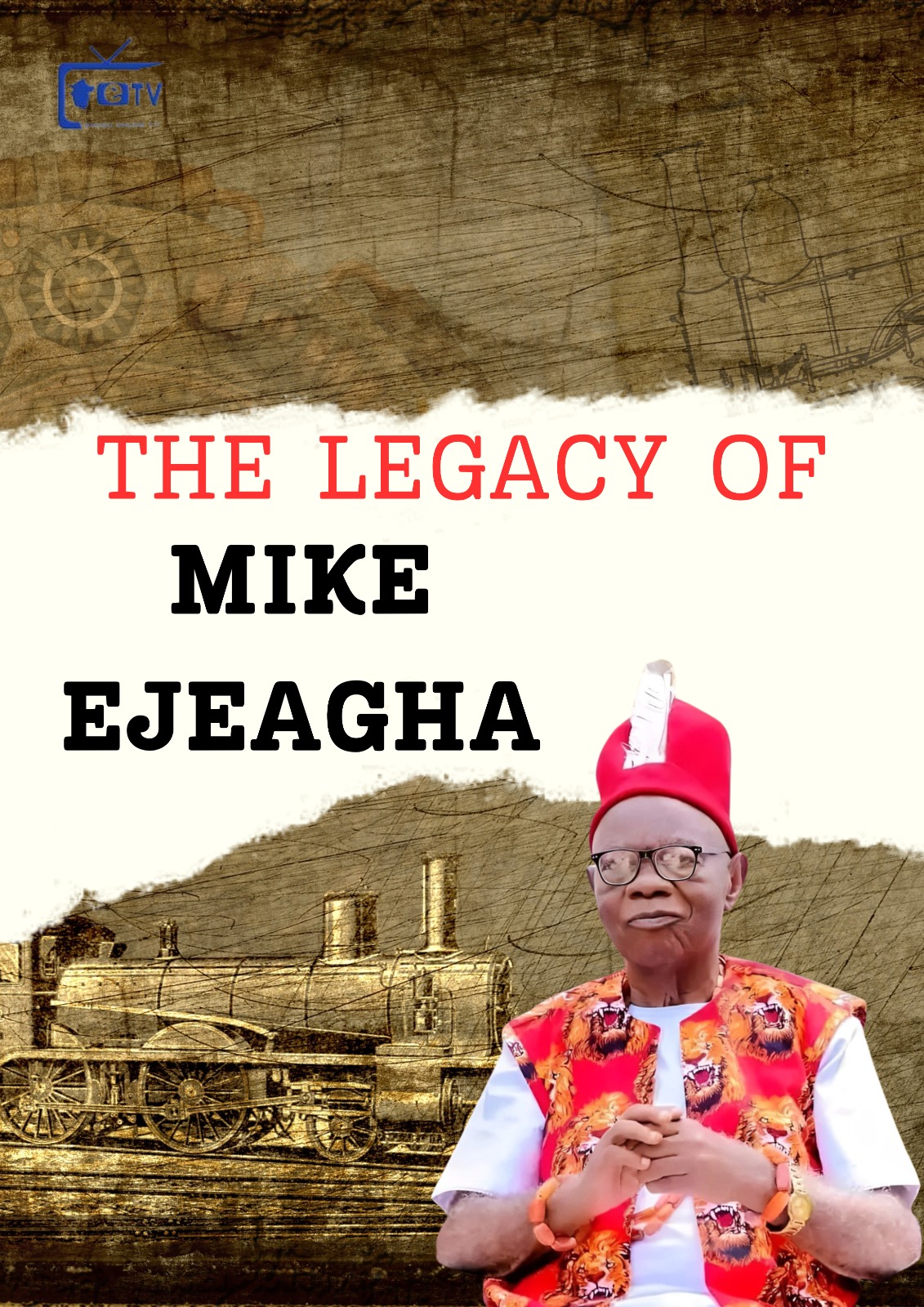
The Legacy of Mike Ejeagha (A Pillar of Igbo Folklore Music)
Mike Ejeagharibe, popularly known as Mike Ejeagha, is a name synonymous with Igbo folklore music. Born in the quaint town of Imezi-Owa in Ezeagu Local Government Area of Enugu State, Nigeria, Ejeagha has made an indelible mark on the music scene with a career spanning several decades. With over 37 albums and five singles to his credit, he stands as a monumental figure in the preservation and propagation of Igbo cultural heritage through music. His journey to prominence began with the release of the song “Ofu nwa anaa” in 1960, a track that resonated deeply with listeners and catapulted him into the limelight. Among his many works, the song “Gwo Gwo Gwo Ngwo,” an excerpt from the original “Ka Esi Lee Onyeisi Oche,” released 41 years ago, remains a significant highlight of his enduring career.
Early Life and Background
Mike Ejeagha was born and raised in Imezi-Owa, a community steeped in Igbo traditions and cultural practices. From a young age, he was immersed in the rich tapestry of folklore, stories, and proverbs that characterized his environment. This cultural backdrop played a crucial role in shaping his musical direction. His early exposure to local tales and traditional music imbued him with a deep appreciation for the art of storytelling, a skill that would later become a hallmark of his music.
Musical Beginnings and Breakthrough
The late 1950s saw the rise in popularity of highlife and traditional music from Nigeria, which is where Ejeagha’s artistic adventure began. Ejeagha started penning songs that embodied Igbo culture out of a desire to preserve both his musical surroundings and cultural heritage. His breakthrough came in 1960 with the release of “Ofu nwa anaa,” a tune that attracted listeners with its melancholic lyrics and enticing rhythms. Not only did this song establish him as a household name in the music industry, but it also set the bar for his other songs.
Contribution to Igbo Folklore Music
Mike Ejeagha’s contribution to Igbo folklore music is immense. His songs are characterized by their rich narrative quality, often drawing from proverbs, folktales, and everyday experiences. He employs a conversational style, engaging his audience with stories that are both entertaining and educational. Through his music, Ejeagha has addressed various themes such as morality, social justice, love, and community values.

How Funny 🤣
One of the defining features of Ejeagha’s music is his use of the Igbo language. At a time when many artists were gravitating towards more commercially viable languages, Ejeagha remained steadfast in his commitment to his roots. This dedication has not only preserved the Igbo language in musical form but also ensured that the younger generations remain connected to their heritage.
Discography and Popular Songs
With over 37 albums and five singles, Mike Ejeagha’s discography is a testament to his prolific nature and enduring relevance. Some of his notable albums include “Uwa Mgbede,” “Onye Ori Utaba,” “Onu Kwube,” and “Ikpechakwa Nwa.” Each album is a rich collection of stories and wisdom, encapsulating the essence of Igbo life and traditions.
One of his most popular songs, “Gwo Gwo Gwo Ngwo,” released 41 years ago, remains a timeless classic. This track, an excerpt from the original song “Ka Esi Lee Onyeisi Oche,” is a vibrant example of Ejeagha’s storytelling prowess. The song’s catchy rhythm and profound lyrics have ensured its continued popularity, making it a staple in many households.
His Impact and Influence
Ejeagha’s impact on Igbo music and culture cannot be overstated. He has inspired countless musicians and artists who look up to him as a beacon of tradition and authenticity. His ability to blend traditional elements with contemporary sounds has created a unique musical style that appeals to a wide audience.
Beyond entertainment, Ejeagha’s music serves as a repository of Igbo culture and history. His songs are often used as educational tools, teaching younger generations about their heritage in an engaging and memorable way. In this sense, Ejeagha’s work transcends music; it is a cultural archive, preserving the past and informing the future.
Recognition and Awards
Mike Ejeagha has accumulated many honors and recognitions throughout the years for his contributions to culture and music. Numerous governmental agencies, cultural organizations, and members of the music industry have honored him. These honors provide witness to his brilliance, commitment, and the positive social impact of his work.
Challenges and Resilience
Like many artists of his generation, Ejeagha faced numerous challenges in his career. The evolving music industry, changing tastes, and the rise of new genres posed significant hurdles. However, his unwavering commitment to his art and culture saw him through these challenges. His resilience is evident in his continued relevance and popularity, even in the face of a rapidly changing musical landscape.
Personal Life and Legacy
Mike Ejeagha is known not only for his music but also for his humility and dedication to his community. He remains a beloved figure in Imezi-Owa, where he continues to inspire with his life and work. His legacy is not just in the songs he has composed but also in the lives he has touched and the culture he has helped preserve.
In summary, Mike Ejeagha’s story is one of passion, dedication, and cultural pride. Through his music, he has woven a rich tapestry of Igbo folklore, ensuring that the stories, proverbs, and values of his people are not lost to time. With a career spanning several decades, numerous albums, and timeless songs like “Gwo Gwo Gwo Ngwo,” which was recently discovered by Brain Jotter, Ejeagha has firmly established himself as a pillar of Igbo music and culture. His legacy will continue to inspire and educate future generations, a testament to the enduring power of music and storytelling.










